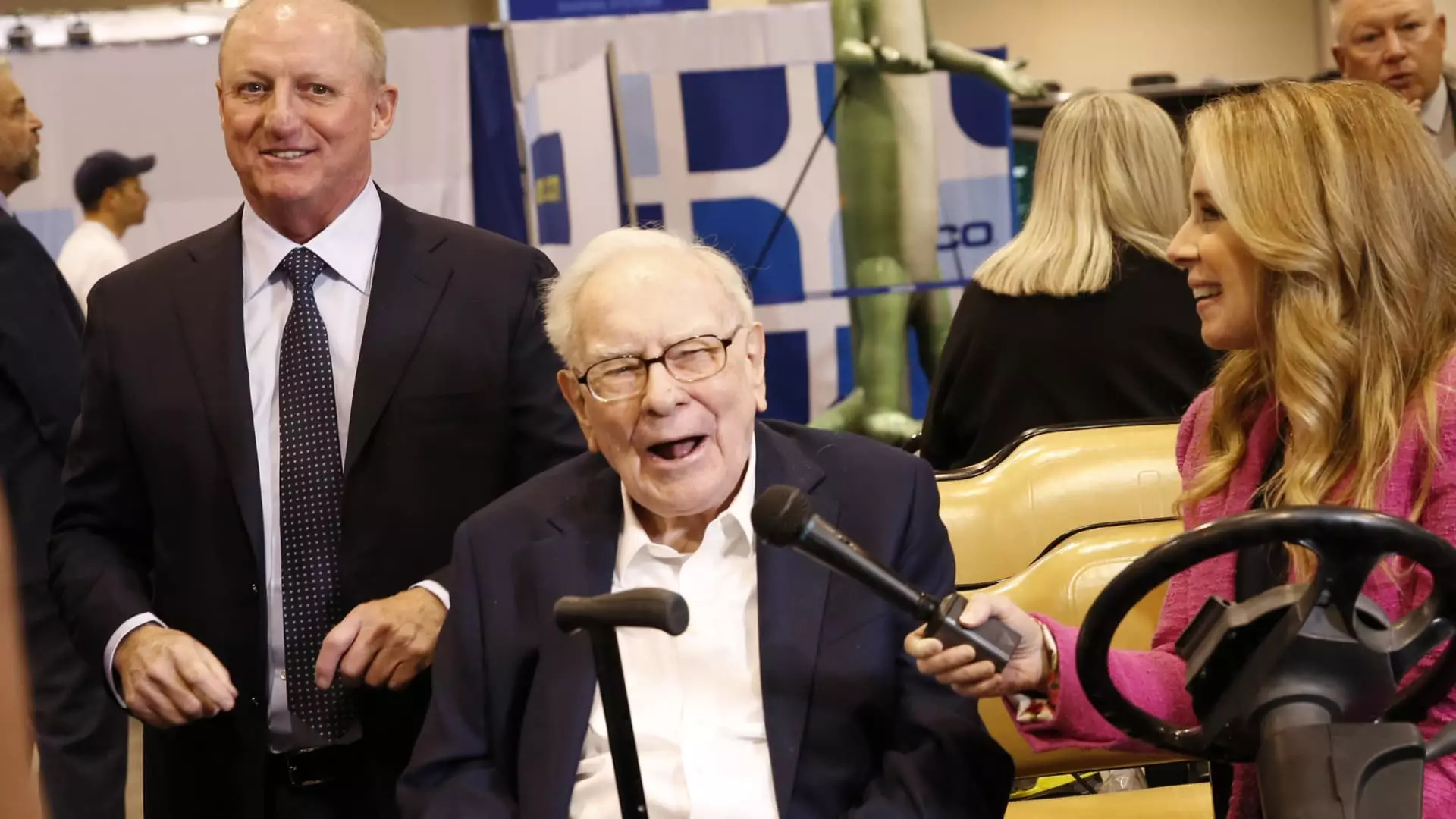The recent announcement from Warren Buffett that he will step down as CEO of Berkshire Hathaway at the end of the year has sent ripples through the investment community. After over six decades of steering one of the most successful conglomerates in history, Buffett leaves behind a legacy highlighted by staggering financial returns that put traditional market averages to shame. Finch-eyed investors and analysts alike are pondering the ramifications of this transition and what it signifies for the future of Berkshire Hathaway under the stewardship of Greg Abel. Though the news might have taken markets by surprise, it is not entirely unexpected given Buffett’s age and the inevitability of succession.
Buffett spent 60 years transforming a once-faltering textile company into a financial behemoth, achieving an astronomical growth rate that is often described in terms of percentages that seem more fiction than fact. The statistics are compelling: a nearly 5.5 million percent increase in stock value since he first took charge in 1965, in stark contrast to the S&P 500’s more modest growth of approximately 39,054% over the same period, dividends included. This kind of performance raises a question that transcends mere financial metrics—how did Buffett do it?
Decoding the Success: Wisdom in Strategy
Buffett’s investment philosophy has revolved around the principles of value investing and a long-term vision that focused more on sustainable business practices than quick yields. It’s not just about numbers; it’s about discerning quality and holding on to that investment until its true value is unlocked. For instance, pivotal years such as 1998 and 1976 spotlight Buffett’s extraordinary ability to not just outperform the market but to also make timely decisions that resonated with the strategic mindset of a true investor.
Notably, in 1998, when Buffett’s fortune surged by 52.2%, aligning poorly with the S&P 500’s 28.6% growth, it wasn’t mere fortune—it was the result of meticulous analysis and a keen understanding of both his portfolio and the broader economic landscape. Such resilience came to the forefront during economic downturns, where Berkshire often bucked the trend by either maintaining its value or even recording gains when everyone else was losing ground. For example, while the S&P 500 nosedived in 2022, Buffett’s conglomerate still registered a rare 4% increase, demonstrating how intelligent management can weather storms that might sink lesser companies.
The Impending Transition: A Mixed Bag of Expectations
Despite Buffett’s astounding track record, his decision to entrust the CEO role to Greg Abel introduces an element of uncertainty. There’s a certain reverence associated with transitions in leadership at storied institutions, and while Abel is positioned as a capable successor, he inherits not just the operational challenges but also the high expectations set by his predecessor. All eyes will be on Abel to see if he can maintain the same level of outperformance that has defined Berkshire under Buffett’s reign.
Furthermore, in scrutinizing Buffett’s final years at the helm, there are signs of a slight fading from the relentless upward trajectory that defined much of his leadership. In 2023, Berkshire’s stock climbed 15.8%—not extraordinary when compared against the S&P 500’s impressive 26.3% gains. It raises questions about whether value investing principles can consistently triumph in a market swayed by tech-driven volatility. In the realm of finance, even the best strategists must adapt or face the risk of being left behind.
A Beacon for Future Generations
Ultimately, Buffett’s legacy will serve as both a template and a challenge for the next generation of investors. Many aspiring financial moguls look to him not just for investment strategies, but for lessons on ethics, business acumen, and the principle that patience often trumps panic. However, what will happen to this ethos as Berkshire continues without its legendary founder? Will Greg Abel uphold these values, or will he prioritize short-term gains that erode the virtues Buffett championed?
The path forward remains uncertain, but one thing is clear: Buffett’s unwavering focus on value, integrity, and long-term growth has created a benchmark that’s unlikely to be matched in our lifetime. It goes beyond numbers; it embodies a mindset—a way of viewing not just the stock market, but the broader economic landscape. Buffett has set the bar high, not for immediate returns, but for sustainable growth, ethical practices, and genuine investment philosophy.

